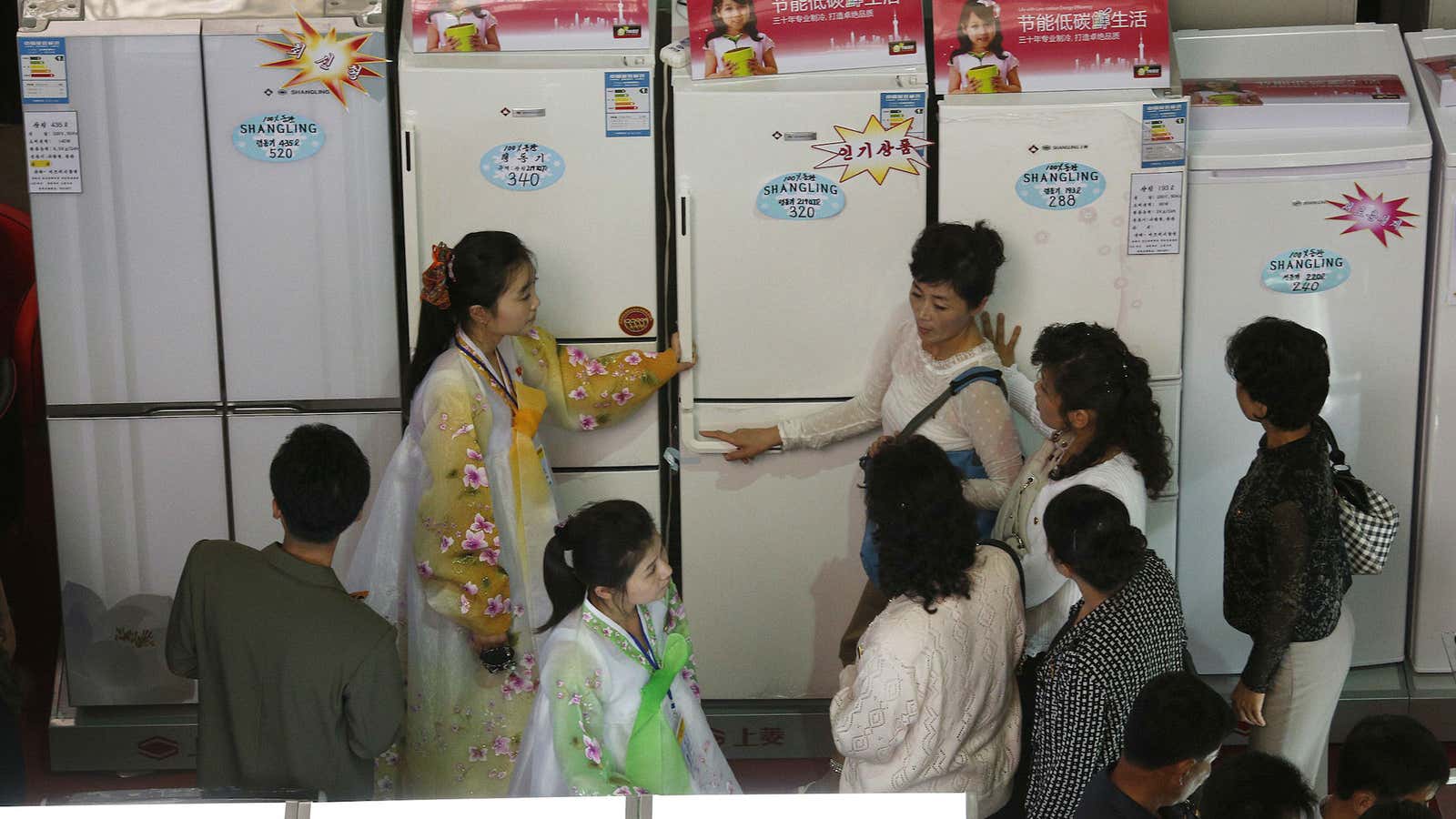The size of the appliances in a typical North Korean home says a lot about social standing. As such, the government uses refrigerators to reward loyal citizens, including its 2008 Olympic gold medalists. More of the country’s growing cadre of nouveau riche are buying refrigerators, and yet few outside the country’s capital are actually using the appliances to cool food. Why?
A small minority of elite officials and business people in North Korea, possibly totaling 3.5 million (p.45), are getting wealthier due to growing legal and illegal trade with China as well as other black market pursuits. And one of their first status buys tends to be a refrigerator, Andrei Lankov, a professor at Kookmin University in Seoul, tells Quartz. ”North Korea is a very poor place, but its economy has improved much throughout the last five to ten years. These semi-legal activities of the new rich are one of forces behind this partial revival.”
Based on accounts with defectors and his own research, Lankov estimates that one in 15 to 20 families, mostly in Pyongyang and northwestern parts of the country, now own a refrigerator. That’s compared to one in 100 households (p. 44) before 1999, an estimate also based on accounts of Korean defectors.
Many of the refrigerators are likely imported from China. North Korean trade with China has ballooned in recent years, and informal markets within the country have been allowed since the collapse of North Korea’s state distribution system after a famine in the 1990s.
But using a fancy refrigerator isn’t easy in an entirely un-fancy country. Because of the frequency of power outages, few families actually keep food in their refrigerators, unless they have managed to connect their homes to a military or industrial power grid. What do the contraptions store instead? In some cases, books.
